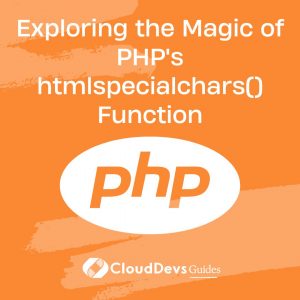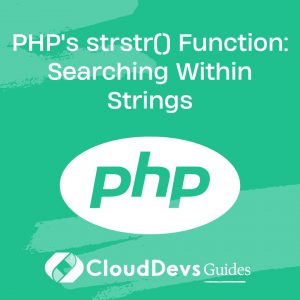Understanding PHP Security: Best Practices for Developers
As a PHP developer, security should always be a top priority when designing and implementing web applications. Businesses seeking to hire PHP developers should look for those who understand the importance of PHP security in today’s digital world, given the prevalence of cyberattacks and data breaches.
Ensuring the developers’ understanding of PHP security best practices is essential. This post will cover various aspects of PHP security that potential PHP developers should be proficient in, from input validation and encryption to safe file handling and error reporting.
What is PHP Security?
PHP security refers to the measures and techniques implemented to protect PHP-based web applications from cyber threats. These include SQL injection, cross-site scripting (XSS), cross-site request forgery (CSRF), and file inclusion vulnerabilities, among others. PHP, like other server-side languages, can be vulnerable to these attacks if not properly secured.
Why is PHP Security Important?
PHP powers millions of websites, making it a frequent target for cybercriminals. This prevalence is why companies looking to hire PHP developers must prioritize security knowledge. An insecure PHP web application can lead to stolen sensitive data, disrupted operations, damaged reputation, and loss of user trust. Ensuring PHP security, a crucial skill for PHP developers to have, reduces the risk of these dire consequences. In this competitive digital landscape, the need to hire PHP developers who can effectively safeguard applications has never been more significant.
Best Practices for PHP Security
1. Validate and Sanitize User Input
Validation ensures that data matches specific criteria before being processed. On the other hand, sanitization removes or replaces any unexpected or harmful characters within the data.
In PHP, you can use the filter_var() function to validate and sanitize input. Also, you can use prepared statements and parameterized queries to prevent SQL injection, where attackers trick the system into executing malicious SQL code.
2. Use PHP’s Built-in Functions for Security
PHP has built-in functions to handle common security requirements. For example, `password_hash()` and `password_verify()` can be used for secure password handling. The `htmlspecialchars()` function converts special characters into their HTML equivalents to mitigate XSS attacks.
3. Secure File Uploads
File uploads are a common vulnerability point. It’s essential to ensure only safe file types can be uploaded, limit file size, and use random generated names for uploaded files. Moreover, store uploaded files outside the document root to prevent direct access.
4. Use HTTPS
Secure communication between the user’s browser and your web server using HTTPS. This protocol encrypts the data transmitted, protecting it from man-in-the-middle attacks. In PHP, you can force HTTP to HTTPS redirection with a few lines of code in your .htaccess file.
5. Use Proper Error Handling
Showing detailed error messages can provide hackers with useful information about your application’s inner workings. Instead, use PHP’s error logging function to write errors to a log file. You can set PHP to log errors instead of displaying them using the `display_errors` and `log_errors` directives in the php.ini file.
6. Keep Your PHP Version Updated
Each new version of PHP brings security updates and fixes for known vulnerabilities. Using outdated PHP versions exposes your application to risks. It’s also recommended to remove or disable unused PHP modules to reduce the attack surface.
PHP Security Tools
Several tools can aid in PHP security:
– PhpSecInfo: Provides an equivalent to phpinfo() function but related to security, providing a quick overview of your PHP environment security.
– PHPStan and Psalm: Static analysis tools that help catch bugs and potential security vulnerabilities in your PHP code.
– RIPS: A static code analysis tool dedicated to detecting PHP security vulnerabilities.
PHP Security and Frameworks
Modern PHP frameworks like Laravel, Symfony, and CodeIgniter come with built-in security measures that handle many of the issues mentioned. They provide robust tools for input validation, CSRF protection, and SQL injection prevention. However, when businesses hire PHP developers, they shouldn’t just rely on their ability to use these frameworks. A good understanding of PHP security is still essential. PHP developers should be able to leverage the security features of these frameworks while also possessing a comprehensive understanding of broader PHP security principles. This multifaceted skill set ensures that even beyond the framework, the applications they develop remain secure.
Conclusion
Securing a PHP application involves various measures, from validating input data and using secure file uploads to ensuring proper error handling and using HTTPS. When businesses hire PHP developers, they should look for individuals who can make use of PHP’s built-in security functions and ensure that the PHP version remains updated. While PHP frameworks offer additional security features, developers must not rely solely on them for application security.
Security is not a one-time task but a continual process of learning, adapting, and improving. With the right knowledge and practices, PHP developers can contribute significantly to making the web a safer place. This mindset should be a critical factor for companies looking to hire PHP developers.
By following these best practices and staying updated on new threats and security methods, PHP developers can harden their web applications against potential threats. This continual vigilance not only maintains the trust of their users but also promotes a safer internet. When you hire PHP developers, ensure they embody this commitment to ongoing education and adaptation to provide the best security for your web applications.
Table of Contents









